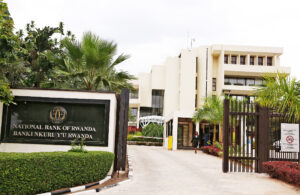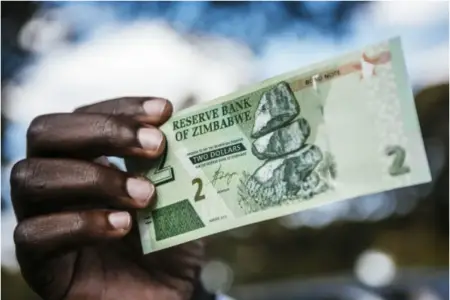- Empowering the Future: Humanity Protocol’s Dream Play Initiative
- TikTok Community Guidelines update aims to curb hate speech and misinformation
- Rwanda sees 39% surge in bank borrowers as Sacco and MFI loan uptake declines
- Kenya Ports Authority wins dispute case over cargo release
- Why Africa can reap billions from digital economy
- Africa private capital deals drop 28 per cent amid global economic turmoil
- Saudi Islamic Development Bank to the rescue of Uganda with $295 million loan
- Reshaping the future of sustainable food systems in Africa
Search Results: Zimbabwe (637)
- Tigere Property Fund, a Real Estate Investment Trust (REIT), declared its first US dollar dividend, totaling US$152,000.
- This marks a major milestone for the company, which listed on the Zimbabwe Stock Exchange (ZSE) last year.
- The global REIT market size is estimated to increase by USD 333.01 billion between 2022 and 2027. The market’s growth momentum will accelerate at a CAGR of 2.8% during the forecast period.
Zimbabwe’s Real Estate Investment Trust (REIT) market has seen a significant development in recent times, with one REIT making a bold announcement regarding its dividends. Tigere REIT, known for its extensive real estate portfolio, has declared that it will be paying out its dividends in US dollars.
Tigere Property Fund, Zimbabwe’s first real estate investment trust (REIT) declared its maiden dividend of US$ 152 577 in line with its Listing Prospectus. The REIT, which was listed on the Zimbabwe Stock Exchange on November …
- The use of generators in Africa has become a necessity for businesses as they complement the downtime of electricity for continued productivity.
- The Environmental Management Authority (EMA) has ordered a fine of ZWL$100,000 for operating a generator over 5kVA without a license, in accordance with Section 64 of the Environmental Management Authority Act.
- The Zimbabwe Energy Regulatory Authority (ZERA) has enforced the proper usage of generators exceeding 100 kilowatts of installed capacity to enhance public safety.
Zimbabwe’s energy landscape has been marred with numerous challenges in recent times, which has resulted in a significant proportion of businesses and households having to resort to alternative sources of power. This has been in a bid to mitigate the detrimental effects of power outages and ensure that the wheels of productivity continue to spin.
However, in the midst of this energy deficit, the Environmental Management Authority (EMA) has instituted a set of regulations …
- The recent announcement of migration of African Sun Limited to the VFEX highlights the growing trend of local businesses shifting away from the ZSE and towards the more favourable investment environment provided by the VFEX.
- With its flexible exchange rate controls, lower trading fees, and ability to raise capital in hard currency, the VFEX offers a unique opportunity for businesses to enhance their marketability and market capitalisation.
- As more companies make the switch, the VFEX is likely to become the preferred choice for local businesses looking to raise capital and grow their operations.
Hospitality Group, African Sun Limited, has recently made the decision to migrate to the Victoria Falls Stock Exchange (VFEX), following a number of local business entities who have also made the switch from the Zimbabwe Stock Exchange (ZSE). This move has sparked discussions regarding the reasons behind the shift and the benefits of listing on the VFEX.…
OK Zimbabwe, a supermarket chain, has acquired Food Lovers Market, giving it exclusive rights to the brand in Zimbabwe. The acquisition will improve the retailer’s position in the premium retail market, according to a statement from the company.
“The company successfully concluded the acquisition of the assets and business of Talwant Investments trading as Food Lovers Market in Harare’s Borrowdale and Avondale as well as Bradfield, Bulawayo,” said company secretary Margaret Munyuru.
The deal includes the assets and business of Food Lovers Market in several locations, including Harare and Bulawayo, but excludes the Greendale store.
Manyuru said the transaction includes the granting of a Territorial License Agreement, which provides OK Zimbabwe with “territorial exclusivity” for the expansion of the Food Lovers Market brand within the Zimbabwean market.
OK Zimbabwe CEO, Maxen Karombo, said the acquisition would enhance the company’s participation in the premium retailing of gourmet food, fruits, and vegetables. …
- It is unique that these companies declared US dollar dividends because it shows that they are committed to helping the Zimbabwean economy
- The Zimbabwe Stock Exchange (ZSE) had a positive performance in the year 2022.
- The All Share Index (ALSI) rose by 5.4 per cent and the Industrial Index (INDI) rose by 8.3 per cent.
Companies that have declared US dollar dividends on the Zimbabwe Stock Exchange include Delta Corporation, Econet Wireless Zimbabwe, Old Mutual, Seedco, Zimre Holdings, and ZB Financial Holdings.
The Zimbabwe Stock Exchange (ZSE) had a positive performance in the year 2022. The All Share Index (ALSI) rose by 5.4 per cent, the Industrial Index (INDI) rose by 8.3 per cent. The Mining Index (MINI) rose by 16.3 per cent, and the Top 10 Index (TOPI) rose by 8.9 per cent. This was a significant improvement from the previous year, where the All Share Index (ALSI) fell …
Zimbabwe’s potential to become the bread basket of Africa again may be possible. The country still possesses fertile soils and a favourable climate, and with the right support, the agricultural sector can be revitalized to once again become a major contributor to the country’s economy, providing food security for the nation and for Southern Africa. What is needed are investments in technology and infrastructure, support for smallholder farmers, encouraging private sector investment, and addressing climate change.
Zimbabwe has a long history of agriculture dating back to the 11th century when the Shona and Ndebele people began cultivating crops such as millet, sorghum, and corn. In the 20th century, the country became known as a major agricultural producer, particularly in the areas of tobacco, wheat, and maize (corn). The country’s fertile soils and favourable climate made it an ideal location for farming, and the government actively promoted and supported the agricultural …
- Edwin Moyo, Zimbabwe’s horticulture industry magnate flies under the radar. He is unlike your typical successful Harare businessman. He is not bashful about his wealth or his influence and yet he is very influential.
- The entrepreneur made his mark in a number of ventures most notably horticulture. His success culminated in his operations at a farm in Zimbabwe’s eastern highlands called Kondozi.
- At its peak, Edwin Moyo’s Kondozi horticulture venture employed as many as 15,000 people and supported the local economy of Mutare.
- Kondozi exported fresh produce as far as Europe and Edwin Moyo managed to secure long term supply contracts with leading United Kingdom retailers like Tesco.
- Edwin Moyo’s experience in Zimbabwe is very telling of the culture of that country to persecute and to hound its most successful businesspeople and entrepreneurs.
- Kondozi is one of the farms that was forcibly taken over by the government under the guise
- The Bikita mine, located 308 kms south of the capital Harare has the country’s largest lithium mines with reserves of 10.8 million tons of lithium ore.
- An export ban is designed to change the incentives for processing firms to relocate or add value to the source market
- A growing number of countries rich in natural resources that the rest of the world needs are introducing export restrictions of raw.
Zimbabwe has prohibited the export of raw lithium from its mines so it can cash in on value addition. Zimbabwe holds the biggest lithium reserves in Africa and the fifth biggest in the world.
The southern African country boasts of many lithium greenfield projects in places like Goromonzi, Mberengwa, Shurugwi, Zvishavane, Bikita and Mutoko.
According to Quartz, the Bikita mine, located 308 kms south of the capital Harare has the country’s largest lithium mines with reserves of 10.8 million tons of …
Zimbabwe’s decades old inflation has been worsened by the Russia-Ukraine war. Inflation in Zimbabwe remains one of the highest globally and the only country in Southern Africa with headline inflation above 50 per cent.
Prior to the war, rising inflation in Zimbabwe, low foreign direct investments, unsustainable foreign debt levels and corruption were among a plethora of problems plaguing Zimbabwe’s economy.
Zimbabwe’s economic problems started surfacing in 1997 when the regime of the late Robert Mugabe paid unbudgeted pensions to veterans of the country’s 1970s liberation war, leading to a currency collapse. The situation got worse in 1999 when Zimbabwe sent its troops to fight in Democratic Republic of Congo civil war that also drew armies from Uganda, Rwanda and Angola. A violent land reform programme that displaced nearly 5,000 commercial farmers, precipitating the crisis. Disputed elections and human rights violations led to the country’s economic isolation, which has taken …
When buying any product what do you really look at on the labels? How often do you check where the products were made? Who knows, maybe some of the products are made on Mars.
One thing for sure is you will come across a tag which reads: ‘Made in Zimbabwe,’ ‘Proudly manufactured in Zimbabwe’ or simply ‘Grown in Zimbabwe.’
Exports continue to grow this year thanks to the increasing popularity of Zimbabwean products in regional markets.
According to statistics recently released by ZIMSTAT, Zimbabwe’s exports grew by 12.8 per cent, from US$3.75 billion to US$4.22 billion, between January and August this year.
This growth has been anchored by export growth in emerging and non-traditional markets in countries such as United Arab Emirates (UAE), China, Belgium, and Italy.
The figures show that Zimbabwe’s products to United Arab have grown to US$1.38 billion in 2022. Exports to China also grew to around …














